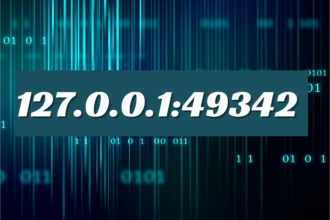What Is a Firewall? Importance and Key Components
The Internet is a remarkable innovation that enables people across the globe to share information instantaneously. While this connectivity has contributed to a sense of global unity, it has also introduced the risk of malicious actors who may intercept, manipulate, and threaten individuals and businesses.
Firewalls serve as an essential network security measure to prevent potential attackers from infiltrating networks. Let’s explore why firewalls are imperative and the critical components of firewalls. To explore more firewalls, consult with Cybersecurity professionals.
Understanding Firewalls
A firewall serves as a network security device that actively monitors and filters incoming and outgoing traffic through predefined security rules. As a protective barrier between an internal network and the external Internet, it effectively obstructs unauthorized access to the internal network while facilitating authorized communication.
Firewalls can be implemented as hardware appliances, software programs, or a combination. They use various techniques, such as packet filtering, stateful inspection, and application-level gateway, to analyze network traffic and determine whether it should be allowed or blocked. By enforcing security policies and controlling network traffic, firewalls play a crucial role in protecting networks from malicious attacks and unauthorized access.
Why is a Firewall Important?
A firewall is essential to network security, as it acts as a barrier between a trusted internal network and an untrusted external network, such as the Internet. The benefits of firewalls include the monitoring and filtering of incoming and outgoing network traffic based on predetermined security rules.
By doing so, a firewall helps to prevent unauthorized access to the network, protect sensitive data from being compromised, and detect and block potential threats, such as malware and hacking attempts. In today’s digital landscape, where cyber threats are becoming increasingly sophisticated, the importance of firewalls cannot be overstated for safeguarding the integrity and security of your network.
6 Key Components of Firewall
Packet Filtering
Packet filtering is one of the key components of a firewall. It involves examining the data packets transmitted across a network and deciding whether to allow or block them based on predetermined rules. The rules are available for the source and destination IP addresses, port numbers, and protocol types.
By analyzing the packet headers, a firewall can determine if the packet meets the criteria defined in its rule set and take appropriate action. Packet filtering is an essential feature of a firewall as it helps to prevent unauthorized access to a network by blocking potentially harmful or malicious traffic.
Proxy Firewalls
Proxy firewalls are an essential component of network security. Acting as an intermediary between an internal network and the Internet, a proxy firewall helps to protect against unauthorized access and malicious activities. It achieves this by examining and filtering incoming and outgoing traffic based on predetermined rules and policies.
Proxy firewalls can provide additional security measures such as hiding internal IP addresses, logging activities for auditing purposes, and caching frequently accessed content to improve network performance. To enhance your organization’s overall network security posture, visit IT Support experts.
Next-generation Firewalls
Next-generation firewalls are an advanced form of network security that offers enhanced protection against modern cyber threats. These firewalls go beyond traditional firewall capabilities by incorporating additional features such as intrusion prevention systems, application awareness, and deep packet inspection.
Next-generation firewalls can identify and block malicious activities in rereal-timey analyzing network traffic at the application layer. They also provide granular control over user access and allow for more effective management of network resources. With the increasing sophistication of cyber attacks, implementing a next-generation firewall is essential for organizations looking to safeguard their networks and sensitive data.
Advanced Authentication
Advanced authentication is a key component of a firewall system. It provides an additional layer of security by verifying the identity of users attempting to access a network or system. This can be done through various methods such as passwords, biometrics, or multi-factor authentication.
By implementing advanced authentication, organizations can ensure that only authorized individuals are granted access to their networks and protect against unauthorized access and potential security breaches. Advanced authentication can also help prevent insider threats by ensuring employees are who they claim to be before granting them access to sensitive data or resources.
Application Gateways
One of the key firewall components is an application gateway. An application gateway, a proxy firewall, acts as an intermediary between clients and servers. It examines the data packets passing through it and applies security measures based on predefined rules.
Application gateways can provide advanced security features such as content filtering, URL filtering, and deep packet inspection. By inspecting the content of the data packets, these gateways can detect and block malicious traffic or unauthorized access attempts. It helps protect the network from potential threats and ensures that only legitimate traffic can pass through the firewall.
Stateful Inspection Firewalls
Stateful inspection firewalls are a key component of network security systems. These firewalls function at the OSI model’s network layer and analyze incoming and outgoing network traffic according to predefined rules. In contrast to traditional packet-filtering firewalls that solely examine individual packets, stateful inspection firewalls retain comprehensive awareness of each session’s connection state and context.
It allows them to make more intelligent decisions about allowing or blocking traffic based on source and destination IP addresses, port numbers, and sequence numbers. Stateful inspection firewalls provide enhanced security by preventing unauthorized access to networks while allowing legitimate traffic to pass through.
In Conclusion
Firewalls serve as the protectors of digital environments, reinforcing networks against persistent cyber threats. Their significance extends beyond their technological capabilities, as they are guardians, safeguarding the integrity and security of the interconnected world. By comprehending their essential components and recognizing their significance, we equip ourselves to navigate the digital landscape with assurance, aware that these vigilant barriers shield the data from potential harm. In an era of advancing technology and evolving threats, the firewall remains an indispensable cornerstone of cyber defense strategy, continuously adapting and changing to defend digital frontiers.


















